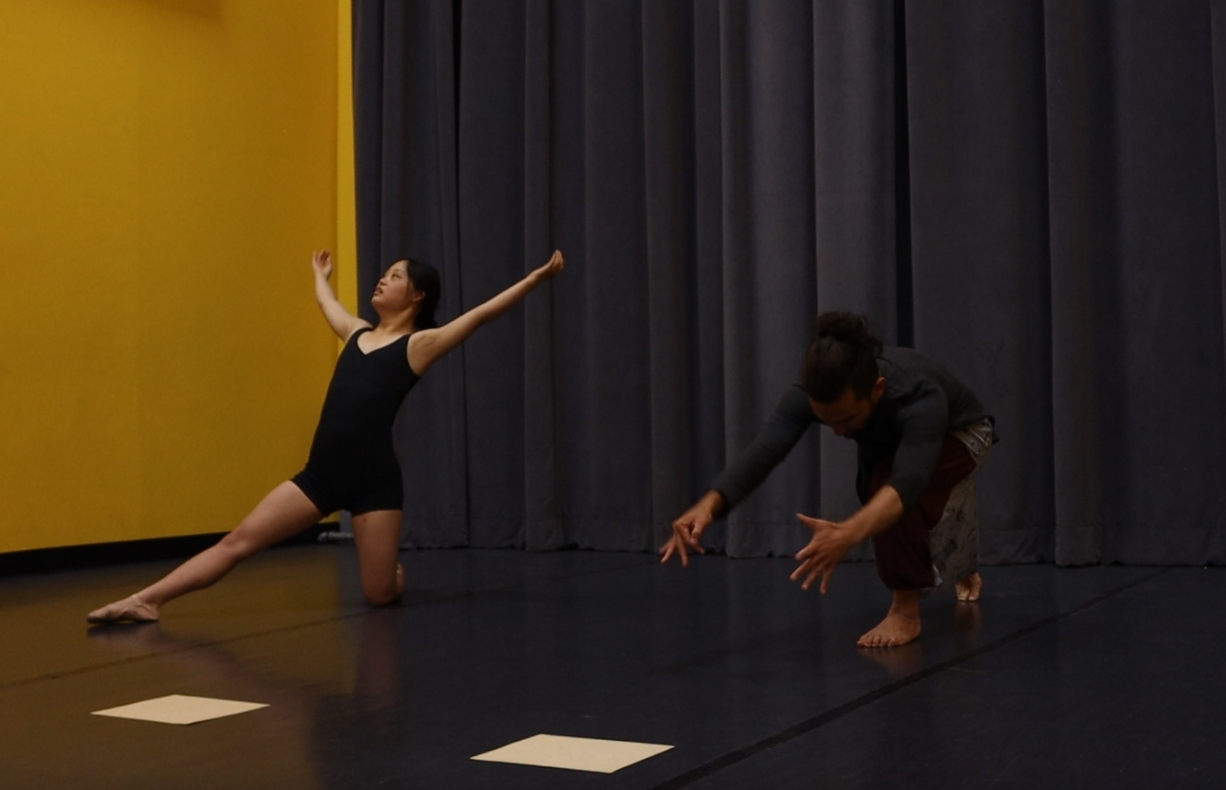
By Meghan Power
Discovering her ability to translate her emotions into movement has allowed her to communicate, release emotions and frustrations, and develop her natural talent for choreography and creative expression.
Meg, now 28, is more focused than ever on developing her artistic practice and exploring new ways to communicate and to grow her confidence as a performer through dance and choreography. “When I saw Kunji Ikeda and his work — I loved it! He is not only a great dancer but also has experience working with artists who have disabilities. It was a perfect match and perfect timing! Calgary Arts Development (CADA) ArtShare funding allowed me to afford one-on-one sessions with Ikeda and this helped me to better evaluate my current skills and potential. What I’ve learned during my time with him has helped me perform in public and has allowed people to see me enjoying dancing. I hope those opportunities can inspire diversity and inclusion for dancers with disabilities in the arts and dance sectors.”
Working with Ikeda has helped Meg feel more confident to move in new, authentic ways: “He helped me realize that I didn’t need to be someone else — I can be me.” Ikeda has helped Ohsada find new opportunities to share her gift. Last September, she travelled to Victoria to perform with Ikeda and other dancers, and most recently has begun working with the National accessArts Centre (NaAC), in Calgary. This work is part of the New Work, New Ways program at NaAC, which is also supported by funding from CADA along with other funding partners.
In this project, Meg is in three of seven participating ensembles: Musical Theatre, Dance, and Indigenous Ways of Knowing. In these ensembles they are doing everything from scene development, script writing, costume design, set design, song writing, quilting and, of course, dance and choreography. They will present their new works in an open-studio style setting (about 50 individual artists altogether) and live performances on the evening of May 25, 2023 at The GRAND, downtown Calgary.
Meg’s ability to grow and develop as an artist and choreographer wouldn’t be possible without access to the ArtShare funding from CADA. This funding gives artists, like Meg, the opportunity to work with mentors who understand and speak the same artistic language. Meg’s mom, Noriko, also commends CADA for offering support throughout the entire grant process — from writing the application, to completing the final report, it is helpful for artists with disabilities who may need extra support and time.
“I don’t often meet people like me in the mainstream dance scene,” says Meg. “I would like to be seen and have more opportunities to connect with performing arts networks in Alberta and Calgary, and to collaborate with more artists in the future.”
YouTube video of Meg and Kunji sessions